[Editor’s note: This story contains details about sexual harassment and intimidation in the workforce. It may be triggering to some readers.]
Few female Calgary Police Service officers applied for the crowd control training course at the former Canadian Forces Base Penhold near Red Deer. The after-hours barracks parties were notorious alcohol- and testosterone-fuelled blowouts.
Kim Prodaniuk, an ambitious young, university educated constable had reservations, but she signed up because she believed it would advance her career. She asked her male supervisor if she could commute home to Calgary each night at her own expense. The police service, he said, didn’t allow it and if she pushed the issue there could be repercussions.
One night during a barracks party, a male officer insisted she join a group headed to a Red Deer bar that featured wet T-shirt contests, and “badge bunnies,” civilian women eager to sleep with cops.
“Despite repeating numerous times that I did not want to attend to the bar, a male officer grabbed me from behind as I was trying to walk away and told the other officers to pick me up off the ground,” Prodaniuk stated in a sworn affidavit.
“I thrashed around and was fearful and desperate to get free. I initially thought this might be some kind of prank or hazing incident. I flipped back and forth between fear, anger and disbelief throughout the entire physical fight inside the barracks.”
Prodaniuk’s affidavit said the men forced her into a van and took her to the bar, where she was “escorted” to the bar entrance. She managed to slip away as the group were checked by the bar’s security.
She said she didn’t report the incident because it would be pointless and would result in “career suicide.”
“I believe that if this situation happened at any other workplace, a police officer investigating this incident would criminally charge individuals involved with kidnapping, forcible confinement and sexual assault,” Prodaniuk stated in a 133-page affidavit filed in March 2019 in support of her sexual harassment lawsuit against the Calgary Police Service and her union, the Calgary Police Association.
More than a decade after the alleged Penhold incident, The Tyee has learned the Alberta Serious Incident Response Team, or ASIRT, is conducting a criminal investigation, believed to be the first historical investigation in Alberta by ASIRT of alleged crimes committed by police officers against another officer.
Citing the criminal investigation, Prodaniuk declined an interview request. But she confirmed she has twice been interviewed by ASIRT investigators in the past month and they are focused only on the CFB Penhold incident.
A spokesperson for Calgary Police Chief Mark Neufeld confirmed the service referred the incident described in the affidavit to Alberta’s director of law enforcement who in turn made the decision to refer it to ASIRT for investigation.
But the CPS would not say when it first knew about the allegations. Investigators for ASIRT however, only contacted Prodaniuk after Alberta’s Court of Appeal upheld a lower court ruling that effectively ended her civil action. It ruled her case should be decided by a labour arbitrator.
None of the allegations contained in Prodaniuk’s affidavit were proven in court or tested through cross examination.
How police culture can breed misogyny
The futile attempts by Prodaniuk and other female officers, and even some male ones, to force the CPS to provide a safe and respectful work environment could serve as a case study into how a toxic culture of extreme misogyny, bullying, intimidation and retaliation becomes rooted and persists.
The allegations in Prodaniuk’s affidavit are so grossly sexist, degrading and humiliating, many people would dismiss them as unbelievable. The retaliation Prodaniuk alleges she experienced after she reported these incidents is so crudely transparent, many people would think it couldn’t happen in a modern police service.
“I believe everything she is saying,” Shirley Heafey, the Calgary Police Commission’s former public complaints director, said in a recent interview. Heafey, a lawyer, also previously served as the RCMP’s complaints director.
“I have seen bits and pieces of these kinds of things for the almost 30 years now that I have been involved in policing,” she said.
“There is no reason on Earth why anyone would put themselves through that. And I know that others have been through it in the [Calgary Police] service who have not had the strength or the courage to go through and fight it as she has. I can't believe she has been doing it for as long as she has.”
Heafey quit her police commission job in 2015 and years later she disclosed that she lodged a complaint against a police commissioner who screamed at her during an in-camera meeting, and that her objection was quashed.
Toxic workplace claims stretch back years
The lack of progress in addressing the toxic culture for women within the Calgary Police Service has been well documented.
At a July 2017 police commission meeting, now former CPS chief Roger Chaffin and former police commission chair Brian Thiessen defended what they claimed was the service’s significant progress in addressing complaints of bullying, harassment and gender discrimination.
About six weeks later however, Sheila Ball, the CPS head of human resources, and another senior HR executive — both women — abruptly resigned. Ball lasted only eight months. She later told the CBC she had been humiliated and ostracized and it became obvious senior CPS officers, who exhibited a “dictatorship” style of leadership, were not open to change.
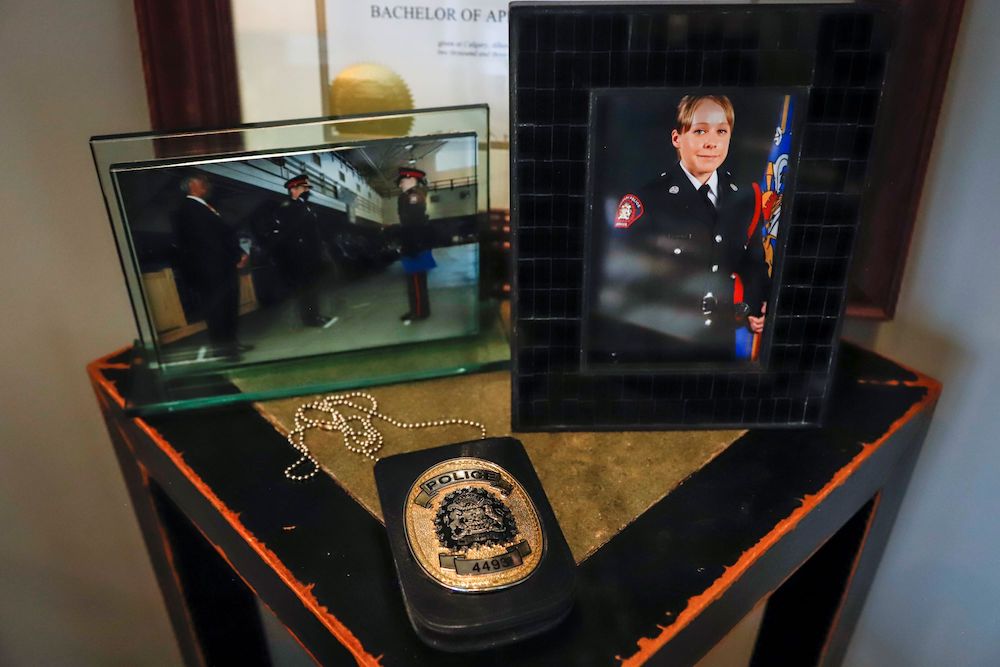
When Prodaniuk’s lawsuit became public in 2019, it created a storm of negative publicity for the police service. The supporting affidavit contains myriad examples of alleged sexual harassment, humiliation and retaliation she endured during the course of her career.
During training for undercover sex-trade stings, Prodaniuk alleges she was “coerced” into pretending to perform oral sex and to fake orgasms in public places, including on a children’s merry-go-round in a mall and at a Boston Pizza.
She and another female trainee were directed to collect some sexually suggestive vegetables in a grocery store and convince a random male customer to have a threesome.
The affidavit alleges that after Prodaniuk completed the undercover training course, a superior officer told her the course had been discontinued. It had been determined the degrading scenarios were less about training than the entertainment of the male commanding officers.
Prodaniuk, in the affidavit, describes another incident in which she was alone in a vehicle with a superior officer who looked her directly in the eye and asked her what the best blow job was that she had ever given.
Throughout the affidavit, Prodaniuk says she told her superiors about these incidents but they often downplayed or dismissed them. The lawsuit also contains affidavit evidence that shows the union representing Calgary police officers declined to advance “blue on blue” grievances or complaints.
‘Masculinity Contest Culture’
Angela Workman-Stark and Susan Rabichuk are former police officers who are now academics. They study police culture and its effect on female officers.
Both said none of the allegations in Prodaniuk’s affidavit surprised them.
“I hate to say this, but they are actually not as extraordinary as one might think,” said Workman-Stark, the author of Inclusive Policing from the Inside Out.
“If you're looking at where it is in terms of egregious behavior, it is probably right in the middle,” said Workman-Stark, who retired as a chief superintendent after a 24-year career with the RCMP and is now a professor of organizational behaviour at Athabasca University.
Rabichuk was one of 14 current and former female Calgary police officers who filed formal complaints in 2017 that alleged the CPS didn’t provide a safe work environment. After only three years on the job, she resigned in 2007, a year before Prodaniuk joined the CPS, and is now a doctoral candidate at the University of Manitoba’s community health sciences department.
Rabichuk’s master of social work thesis focused on the experiences of female police officers from across Canada including Calgary, the psychological stress they experienced and their mental health outcomes.
“I found a lot of their stress experiences had less to do with the job that they performed for their daily role in policing,” Rabichuk said, adding later that it was more to do with the misogynistic and sexist environment in which they had to work.
In an interview with The Tyee, Workman-Stark stressed she was not speaking specifically about the Calgary Police Service and she further stressed that this culture isn’t exclusive to police forces. They also exist, for example in fire services and prisons where women are a minority.
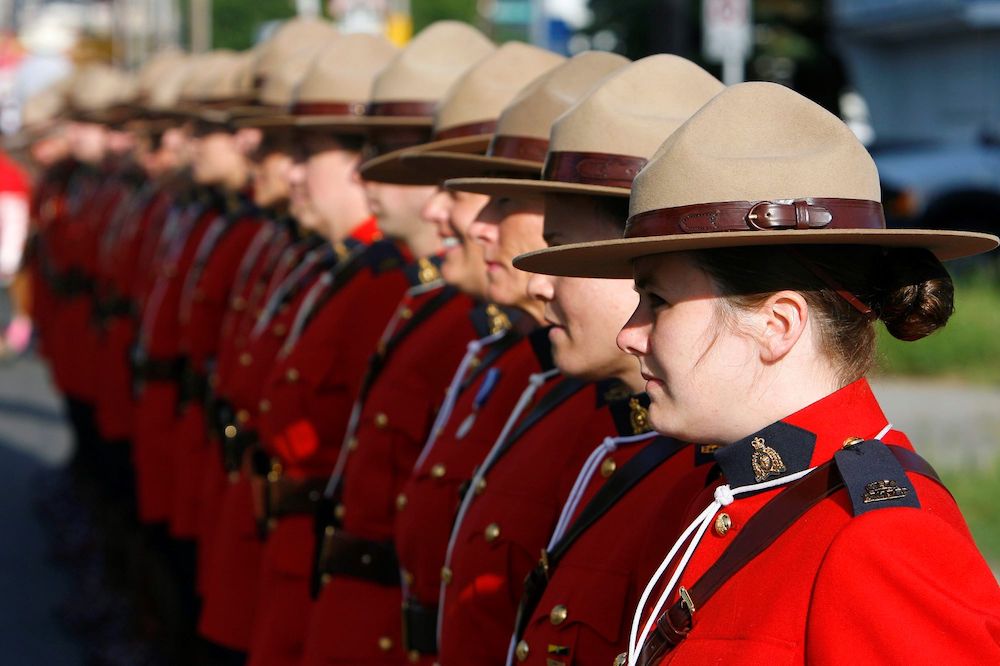
Workman-Stark published a paper in 2020 which cited studies that showed the highest incidence of harassment occurs in male-dominated occupations, such as policing, that value masculinity over femininity and prize specific forms of masculinity, including “competitiveness, assertiveness, physical strength, aggression, risk-taking, courage, heterosexuality and lack of feminine traits.”
Researchers dubbed this the Masculinity Contest Culture, or MCC, and in it, men — and women — are expected to prove their manhood. The most successful are rewarded with higher positions of power. The winners tend to be straight white men, the research found.
One researcher created an MCC scale to help identify these masculinity cultures and the costs for both individuals and organizations.
“Initial testing demonstrated that the MCC scale correlated with greater organizational dysfunction, negative behavior and poorer individual outcomes for both men and women, including bullying and harassment,” Workman-Stark’s paper states.
This masculinity culture has “also been found to be associated with gender, ethnic and sexual harassment.
“Because the prototypical police officer is viewed as aggressive, competitive, brave and strong, women are less likely to be valued and selected as police officers,” the paper states. “Of note, women currently account for 22 per cent of all police officers in Canada.
“Additionally, when women perform ‘masculine work’ they may be perceived as challenging masculinity, thereby compelling dominant men to denigrate and harass women in response to a perceived identity threat. To this end, prior research has shown that women in policing experience higher levels of gender stereotyping, discrimination and harassment.”
Rabichuk said police cultures are founded on sexism, misogyny and patriarchal values, which privilege masculinity over femininity. In this culture of male privilege and entitlement, women become seen as objects.
“In this hypersexualized environment, women aren't necessarily viewed for their ability to contribute to the team, but to have domination over,” she said.
Workman-Stark said these sorts of sexualized environments become normalized over time and people either don’t report it or call it out because they fear repercussions, which further ingrains the culture and it becomes accepted.
“So then what happens is you have this persistent cycle of harassment.”
A pattern of ignoring victims
Both Workman-Stark and Rabichuk said female officers who complain about, or formally report, this egregious treatment, are often viewed as the problem and are counselled to learn to get along with their peers.
Rabichuk said that even if a female officer is allowed to file a grievance, it can have serious negative consequences.
“You can come forward with a grievance, but you better believe that the people you work with are going to hear about it,” she said.
“And then that officer opens themselves up to all sorts of retaliation including a lack of backup, which is probably the most serious. If you don't have backup when you go to a dangerous call, your life is at risk.”
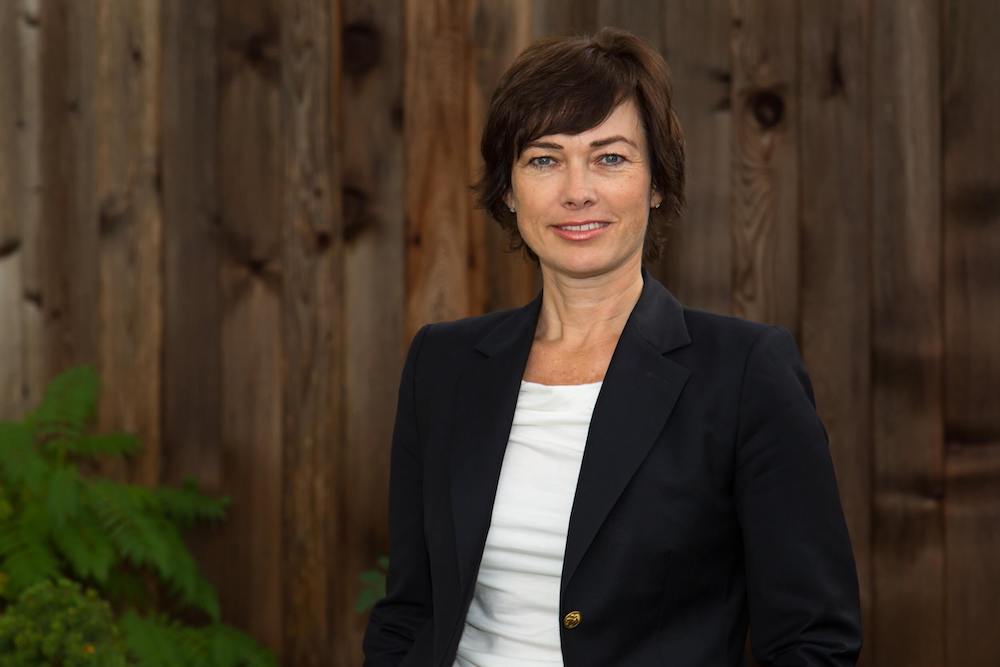
Prodaniuk’s case highlights the catch-22 situation sometimes faced by female officers, and to a much lesser extent male officers, who attempt to seek justice and accountability, Rabichuk said.
The courts blocked Prodaniuk’s attempt to sue the police service by ruling it was a labour issue — despite the fact Prodaniuk’s lawsuit contained serious criminal allegations, which are now being investigated.
But often the first hurdle for police officers is their own union.
“There is a particular grievance process that you have to follow within the union, but if the union has elected people who adhere to masculine values and want to protect that culture and protect that privilege, they are not going to advance those grievances,” Rabichuk said.
Prodaniuk’s lawsuit argued this hurdle is codified: the collective agreement between the city and the police association doesn’t allow one officer to file a grievance against another.
And, in fact, an affidavit filed in support of Prodaniuk’s lawsuit contains an email in which the former police association president details why the union doesn't, and won’t, file those grievances or even personal complaints.
After Prodaniuk’s loss at the Court of Appeal, the City of Calgary attempted, but failed, to obtain significant legal costs — again despite the fact that she had made serious criminal allegations.
A call to change how complaints are handled
Workman-Stark said that by ruling sexual harassment allegations are labour relations issues, the courts ignore the reality that the systemic sexism and misogyny that may exist within police services also exist within their unions.
“I have heard women from other services say they wouldn't trust individuals in the union or the association to actually handle their complaint,” she said.
“It leaves female officers without any real avenue,” to pursue justice and accountability.
For this reason, Workman-Stark advocates for a system that would allow the external reporting and investigation of sexual harassment allegations for both female, and male, officers.
This would ensure the allegations would be taken seriously, reduce the chance of retaliation and give officers more of a sense of physical and psychological safety, she said.
“The status quo, even in a unionized environment, isn't sufficient and needs to change.”
In her research paper, Workman-Stark wrote that “typical efforts to address harassment and other forms of workplace misconduct have tended to take a compliance-driven, tactical approach by reinforcing conduct policies and practices, providing harassment and other forms of training to all employees, fixing certain individuals, and increasing the number of women.”
Which is mostly what has been done by the Calgary Police Service.
“While this approach may have checked certain boxes, it has largely overlooked the contextual and other factors that lead to certain forms of misconduct,” the research paper states.
Workman-Stark said changing these toxic cultures requires change at the top. Senior managers must model appropriate behaviours, communicate their expectations to employees, and discipline people who step out of line.
“The [organizations] that I see that are actually starting to get traction, are really making it intolerable,” Workman-Stark said, likening it to the strictly enforced policy that ended smoking on airplanes.
Rabichuk agrees but said sexual harassment and bullying also needs to be called out by rank- and-file officers.
“If enough people at the bottom start calling it out, that will help to make it unacceptable.”
If you have any information for this story, or information for another story, please contact Charles Rusnell in confidence via email. ![]()
Read more: Rights + Justice, Alberta, Gender + Sexuality


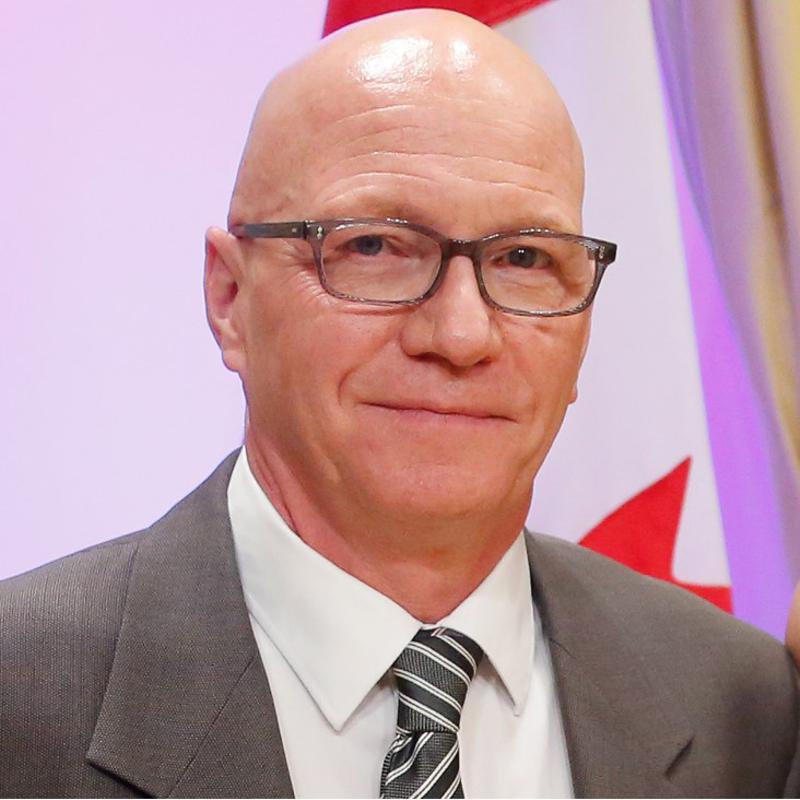

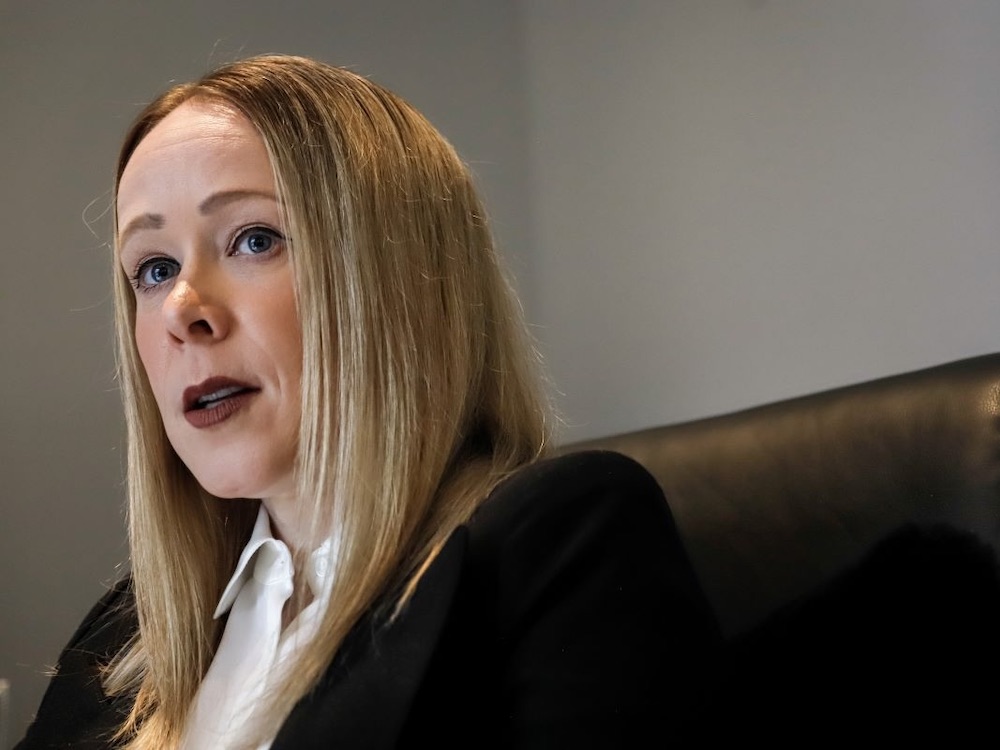












Tyee Commenting Guidelines
Comments that violate guidelines risk being deleted, and violations may result in a temporary or permanent user ban. Maintain the spirit of good conversation to stay in the discussion and be patient with moderators. Comments are reviewed regularly but not in real time.
Do:
Do not: